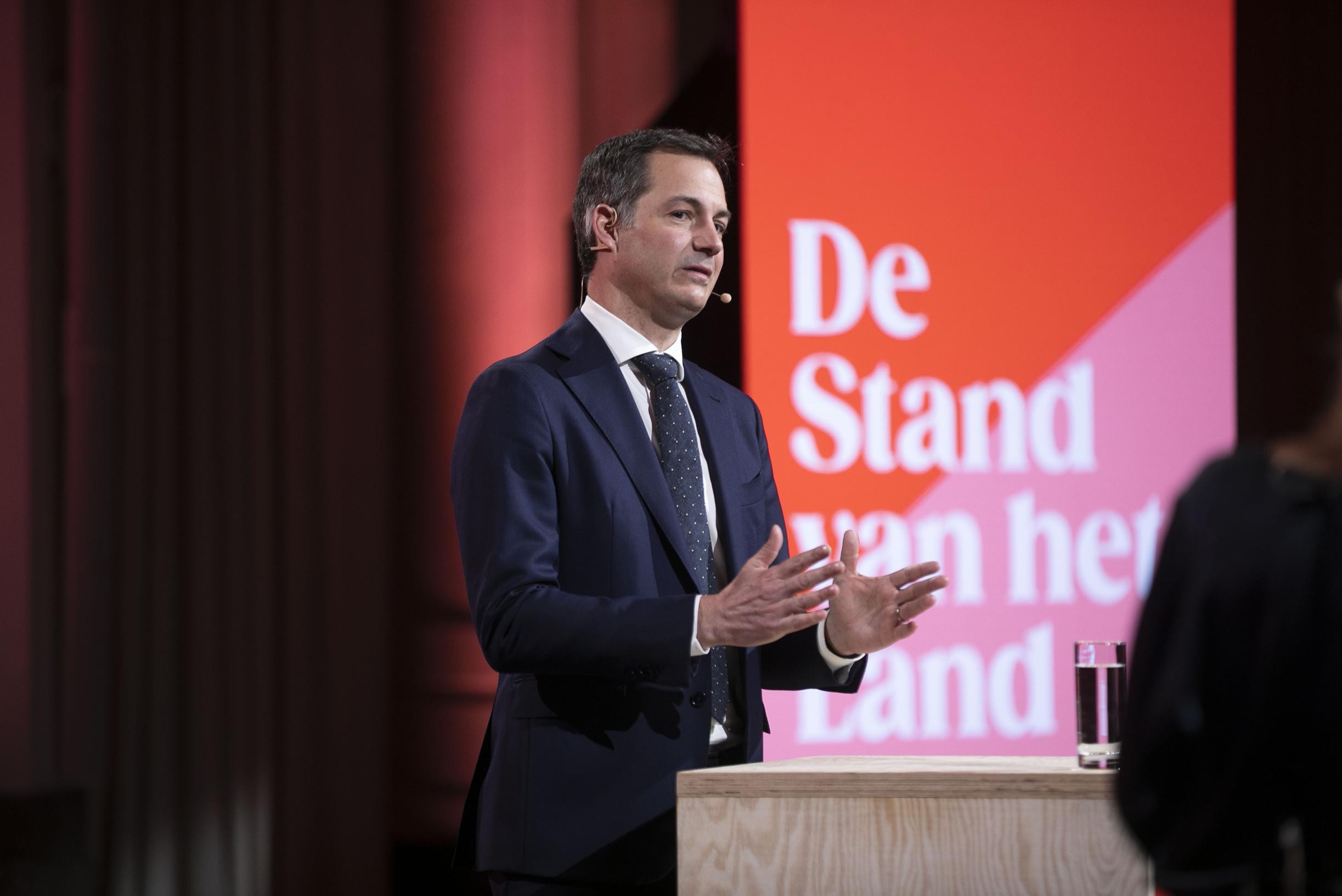Alexander De Croo — © BELGA
–
Prime Minister Alexander De Croo does not like an index jump, which entrepreneurial organization Voka insisted on Monday at its New Year’s reception. “Right now, stability is needed. In the long run, if there is a majority in favour, the discussion can be started” about a general reform of wage indexation, the prime minister said on the sidelines of the New Year celebrations.
–
jvhSource: BELGIAN
—
De Croo pointed out that the automatic indexation is in balance with the wage agreement that was approved last year “in difficult circumstances”. That agreement provides for a wage increase of up to 0.4 percent, spread over 2021 and 2022. “We are now at a very turbulent time, with energy prices making jumps and problems in the supply chains,” said the prime minister. By indexing wages and thus adjusting them to rising lifespans, “this ensures that the uncertainty of many people is tempered”.
In addition, the prime minister also referred to the government support measures that many companies have received over the past two years to get through the corona crisis. Voka is asking for an index jump. The employers’ organization points out that without it, wage costs for companies will rise by 7 percent over a period of two years.
Energy security
In connection with energy policy, Voka urged Monday to take a decision in March, “after years of procrastination, which least threatens the security of supply of energy”. In addition, the track of keeping the youngest nuclear power stations open for an extended period of time must also be prepared, in addition to the track of gas plants, says chairman Wouter De Geest.
Prime Minister De Croo agreed: “Our basic rule is 100 percent security of supply (…) Until the date of mid-March, as long as no final decision has been signed, I will take the other route (that of the extension of the nuclear power plants, ed. ) not buried. In terms of caution, that would not be smart,” said the prime minister.
Flemish Prime Minister Jan Jambon, for his part, assured that Flanders, which is competent for the permits of gas-fired power stations, “will not play political games in connection with the permits within the legal framework. We will assess it fairly.” Although the N-VA member did express his personal reservations about the choice for more gas-fired power stations that emit a lot of CO2.
— .


